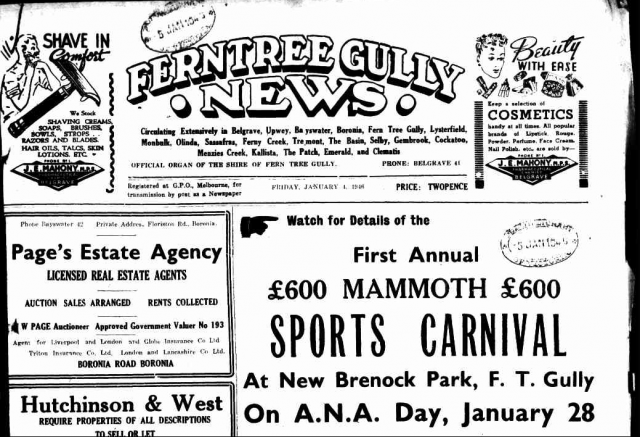The National Library of Australia’s research portal, Trove, has received a $33 million injection from the federal government, confirming its future and saving the valuable resource for researchers, academics, historians and journalists.
In January, the Star Mail reported that the National Library had stated that without additional funding, the Library would have been forced to cease offering the Trove service entirely, which gives free access to over 6 billion historical items like newspaper clips, birth and death records, magazines, books letters, music and audio from around 900 Australian institutions.
On Tuesday 3 April, Minister for Arts Tony Burke announced the National Library will receive $33 million in funding across four years in the next budget.
Mr Burke said Trove is in many ways Australia’s digital memory.
“It records and retains some of our most important stories, moments, challenges, controversies and successes in one accessible location,” he said.
“Whether you’re using it to look up a bit of family history, or for academic research, Trove is an incredibly important part of our national cultural institutions.”
The government is also providing $9.2 million in indexed ongoing annual funding.
Mr Burke said the funding will help restore and maintain the strong cultural infrastructure after the previous Coalition government decided that Trove funding would end on 30 June 2023.
“It takes us a step closer to ending the budget cuts and culture wars of the previous government,” he said.
In the past, Knox City Council and Yarra Ranges Council care grants, Public Records Office Victoria grants and community fundraising has uploaded 35 years’ worth of copy from five local newspapers to Trove.
Monash University Emeritus Professor Graeme Davison AO said Trove has revolutionised research in Australian history and culture, brining the riches of our library collections to the desktops of researchers all over the continent.
“Stories hidden among the millions of words in old newspapers, and images locked away in vaults of libraries and archives are now being shared with people who seldom entered a library’s doors,” he said.
“It has demonstrated the enormous analytical power of online historical research. Trove is an Australian success story, and a model of democratic information sharing that other nations have followed.”







